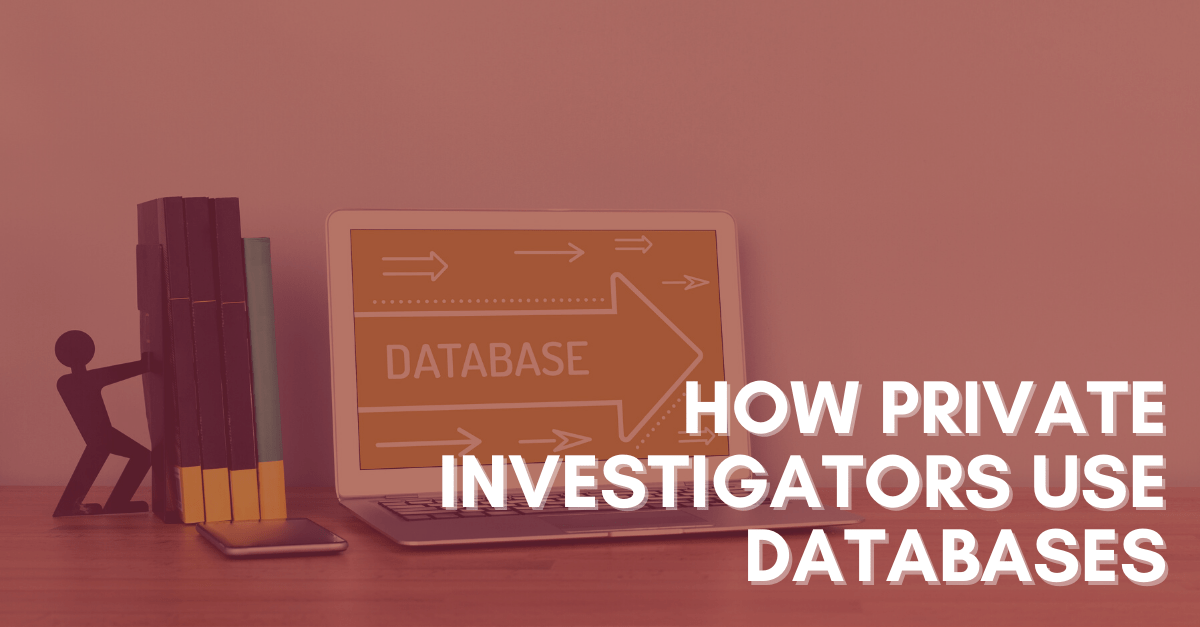Last week we delved into how a private investigator gains access to databases. Whereas this week we will be looking into how private investigators use these databases to better perform at their jobs. There are a wealth of reasons why databases are so important for PIs. Among the highest is that they make their lives much easier, and are crucial to a speedy and efficient investigation. In today’s age we log all data, whether personal or otherwise. Databases help private investigators catch trail of their subjects, and often times these can’t just be accessed by just anyone. Private investigator must make sure they vet themselves before gaining access to any of this information.
So what do databases contain that’s so important to PIs? Credit header. In other words, it is the information logging consumers’ credit reports in the US. Most databses contain some form of credit header. The reason they are so important is beacuse the may contain aggregated civil and criminal records, professional licenses, property records, voting records, vehicle registration and more. Essentially, a vast wealth of information that can be redirected to its recipient. A private investigator can use this information to track someone, or link a case to them.
How do private investigators use databases?

In most scenarios a PI may start with by scanning a public database, using it as a stepping stone. These can only take them so far, however, and that’s why they need access to private ones too. These (as explained in last week’s article) require vetting, background checks and payment to access. Furthermore, if said private investigator is in a state that requires them to hold a license, then they also need it to gain access to these databases.
With access to these tools (both public and private databases), they can gain an edge in any investigation. Some databases like IRBsearch are great because of their email search capabilities, they’re versatile and accurate. Provided you know how to use it, of course.
Other useful search engines include: eTools and a number of OSINT tools. Free ones include My Life and emailrep.io, and an example of paid ones are Spokeo and PIPL. Or there’s even Whitepages.com if you’re looking for a public resource. This can help identify family members and even neighbors, crucial information.
Are databases really necessary or just convenient?
This is not to say, however, that databases do the whole job. They are the tip of the iceberg. Knowing how to navigate them is vastly important, and this is where private investigators need to start doing some digging.
For example, a database may have access to the phone numbers attached to their subject, however, these may not be up to date (although they usually are). Some of these databses may also bring up archaic email addresses of bygone eras, or ones that haven’t been in use for years. That doesn’t mean they’re useless, however, a forgotten email address may hold forgotten and information, that might prove crucial to an investigation. It’s with these old accounts that PIs have to start connecting the dots. Have they recycled any of their accounts? Usernames reused? Etc.

So, all in all, databases are very important to a private investigators job, especially in the digital age. However, having the know-how, and being able to jump between all of them is where the skill comes in. Compiling all of this information together and putting it together, that’s where the private investigator comes in. Databases are an important tool, the key to the door to the path that a private investigator must walk, you could say.
If you find yourself in need of a licensed private investigator and their particular set of skills, please feel free to call us. Or simply click on this link to get in contact with one of our team members.









